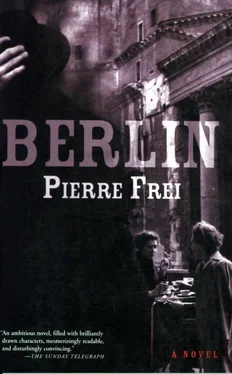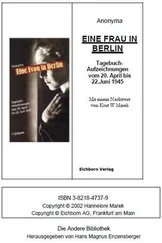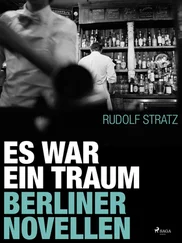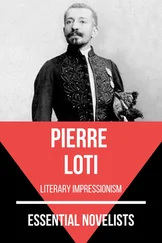Dietrich was not spared. 'Got a pass.' It was a command, not a question. The inspector showed his ID and the much-stamped red pass. The man waved to his colleague. They took Dietrich's arms and led him out of the station. Several sympathetic glances accompanied him, but most people looked the other way. They didn't want anything to do with men in hats and leather coats, not now any more than in the past.
A black Tatra limousine was waiting outside. The men squeezed in to right and left of Dietrich on the back seat. They stank of machorka and vodka. A third man, wearing a Mao cap, was at the wheel. After driving for twenty minutes they passed several Russian guards and barbed-wire barriers. A tall gate opened, the car rolled through and stopped. They were in the yard of the Brandenburg penitentiary. The gate closed behind them with a booming echo. Will I ever get out of here? Dietrich wondered with mixed feelings.
A red-brick building. Another guard, with a sub-machine gun. Inside, they went down some stairs and along a corridor with a concrete floor. One of Dietrich's companions opened an iron door. The other pushed him into the bare room, which was illuminated by a single bright light. A fat Russian woman in NCO's uniform sat behind a desk.
'Name?' she barked at him.
'Klaus Dietrich. Inspector in the Criminal Investigation Department in Berlin. I have a visiting permit.' He handed her the red paper.
She put it down on the desk in front of her. 'Undress,' she ordered. Dietrich froze. 'Didn't you hear?' His two guards had positioned themselves by the door, arms folded, obviously ready to help. He knew he had no choice. He had entered the lion's den of his own accord, and now it would be unwise to provoke the lion. With studied indifference, he took his clothes off. He kept on his prosthesis, with its shoe and sock. It was his only support: there was nothing else to hold on to.
The Russian woman rose and waddled towards him. She walked slowly all round him, looking him up and down. Then, just as slowly, she waddled back to her desk. She brought a stamp down on the red paper and gave it to him. 'Get dressed,' she ordered, without giving him another glance. Then he understood: the whole thing was routine; every visitor had to go through it.
He fastened his last trouser button. 'Pleased to have met you,' he said wryly. She took him at his word, and a broad smile appeared on her round face.
An officer with NKVD tags on his collar was waiting for him in a large office on the first floor. 'Lieutenant-Colonel Korsakov,' he introduced himself. 'CID Inspector Dietrich, am I right?' He spoke excellent German. A vodka?'
'Thank you very much, Tovarich Lieutenant-Colonel.' After his treatment in the cellar, this reception was reassuring.
Korsakov filled two glasses, and they tossed them back standing up. Now, please sit down. Tell me, how is he?'
'You'll have to tell me who you mean first.'
'Why, Gennat, of course. Detective Superintendent Ernst Gennat. Fatso Gennat, that's what your bunch used to call him. A great police officer. Inventor of the flying squad for murder cases. We adopted that idea ourselves, it was very successful.' It turned out that Korsakov was a detective superintendent with the Moscow CID, and an admirer of its Berlin counterpart.
'He retired quite a while ago. I think to somewhere in the Rhineland,' Dietrich improvised. 'I'm afraid I don't know any more details.'
'Well, give him my regards if he ever comes to Berlin. Another vodka?'
'No, thank you. You know why I'm here, and I'll need a clear head for that.'
'Chief Superintendent Schluter. Another Berlin CID man. Pity about him. He's waiting next door.' Korsakov opened the door to the next room. 'Please go in. Knock when you've finished.'
The room was empty except for a chair and table, and a stout wooden armchair in front of it. Straps on the arms and legs of this chair left no one in any doubt of the methods of interrogation employed here. The man at the barred window wore a mended drill suit which was the same dirty grey as his thin face.
'I'm Wilhelm Schluter. Don't suppose you want to shake hands with me.'
'Klaus Dietrich. Acting head of the Zehlendorf CID. I'm not your judge.' The inspector offered his hand.
Schluter gratefully took it. 'My successor, are you? What do you want from me, Herr Dietrich?'
'Your help. It's about the murder of a woman back in 1936. You were leading the inquiries at the time, and the files have disappeared. I'd be very glad to know all the details.'
'Why?'
'Three women have been tortured and murdered on our patch.'
Ah. Vaginally abused with a sharp object, strangled with a chain. All of them fair-haired and blue-eyed.'
Klaus Dietrich swallowed. 'How do you know?'
Schluter was pacing up and down. Finally he stopped right in front of Dietrich. 'It wasn't just one murder. There were six of them, between 1936 and 1939.'
'Six?' Dietrich was appalled.
'What the FBI calls a serial killer. At the time I read everything I could about similar cases in the USA, to get more information. That series of murders in Milwaukee, for instance. The murderer tied his victims to a tree and throttled them with his bare hands before raping them. Eighteen redhaired girls and women.'
'Six murders at Onkel Toms Hiitte, all following the same pattern?'
'Only the first was made public. When the second woman was killed, it was clear we were dealing with the same murderer, and that he was fixated on a certain type. The following cases confirmed it. Himmler commandeered the files and put his own people in charge. He ordered secrecy. A manic sex murderer didn't fit the picture of the healthy German nation. He forbade us to say anything more about it.'
And you obeyed his orders?'
'I went on working on the case on my own initiative. It was a challenge to any true investigator, and those Bavarian amateurs in the Gestapo weren't getting anywhere.'
'The murders were all similar?'
'Particularly in the way the murderer played cat and mouse with me. He knew I was after him, and he accepted the challenge.' Schluter laughed soundlessly. 'Case number three. Gerlinde Unger. Probationary teacher at the Zinnowald School. That was in the winter of '38. He buried her in a sandbox at the Onkel Tom U-Bahn station, leaving her face showing. She looked like a Madonna. I found her after he left a clue in my car, a bag of sand. Gritting sand for the roads was mixed with red salt at the time, so I knew where to look.'
'But you still didn't catch him.'
'I was hot on his heels. I hoped the tools he used would lead me to him. But the murders suddenly stopped at the beginning of the war.'
'Because the murderer was called up,' said Dietrich, excited. 'He was away right through the war. Now he's back, and killing again.'
Schluter stopped pacing, and pointed to the sturdy chair with its leather straps. 'They've stopped torturing me. They've got all I know out of me.'
'What advice would you give me, Herr Schluter?'
'Carry on where I left off. Look for the tools he uses, like I said.'
'The chain?'
Schluter did not reply. He was gazing into the distance. 'They'll shoot me soon now. A bullet in the back of the neck at close quarters. It's quick. My men and I did it thousands of times in the Ukraine. Goodbye. I wish you and our country a better future than the one we thought we must murder for.'
Klaus Dietrich hammered on the door. Lieutenant-Colonel Korsakov let him out. A serial killer, how interesting. I wish I could work with you in Berlin.' He had listened to the entire conversation.
Six hours in the sidings at Potsdam because of endless Russian military transports and two laborious inspections by Saxon railway police officers made the journey back to Berlin as bad as the journey out. They passed through Zehlendorf West station at snail's pace, which meant that Klaus Dietrich was able to jump out on the platform and land unharmed. From there it was only a few paces to the police station.
Читать дальше












